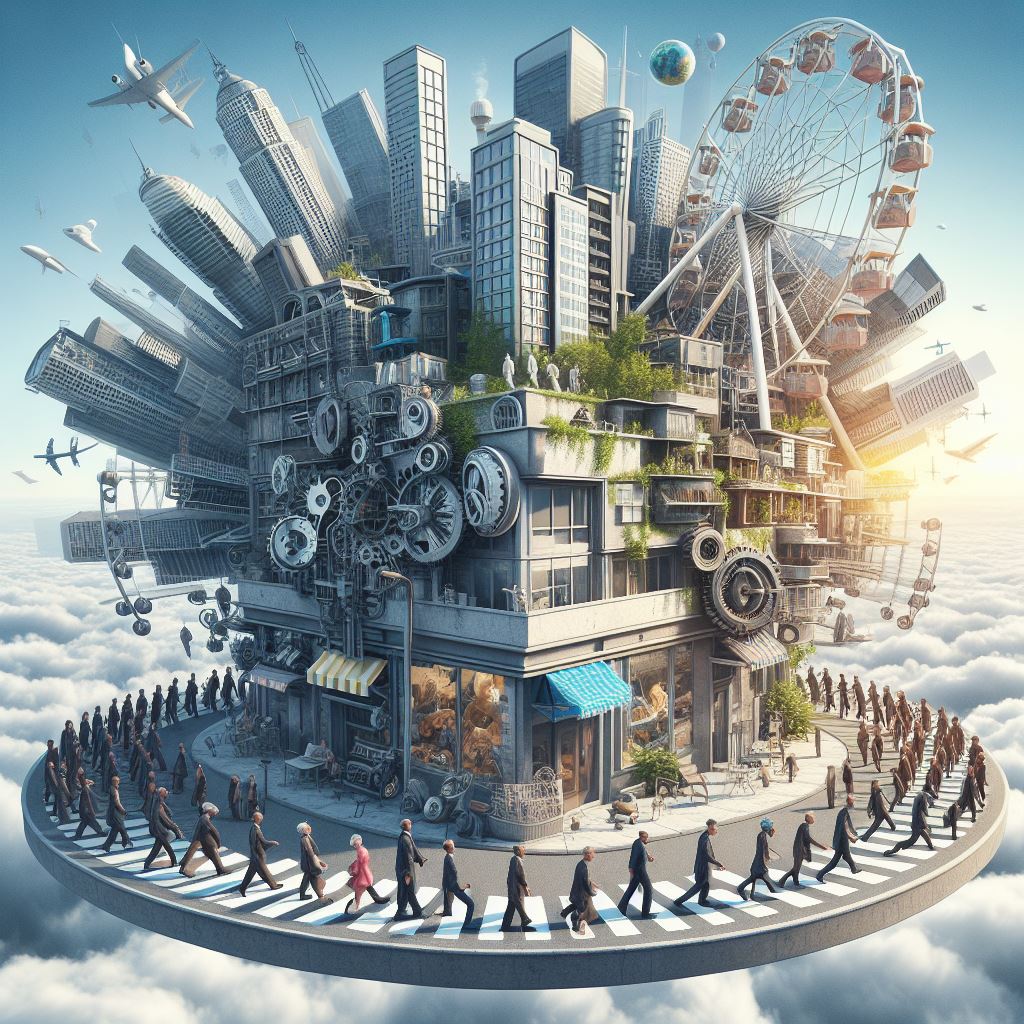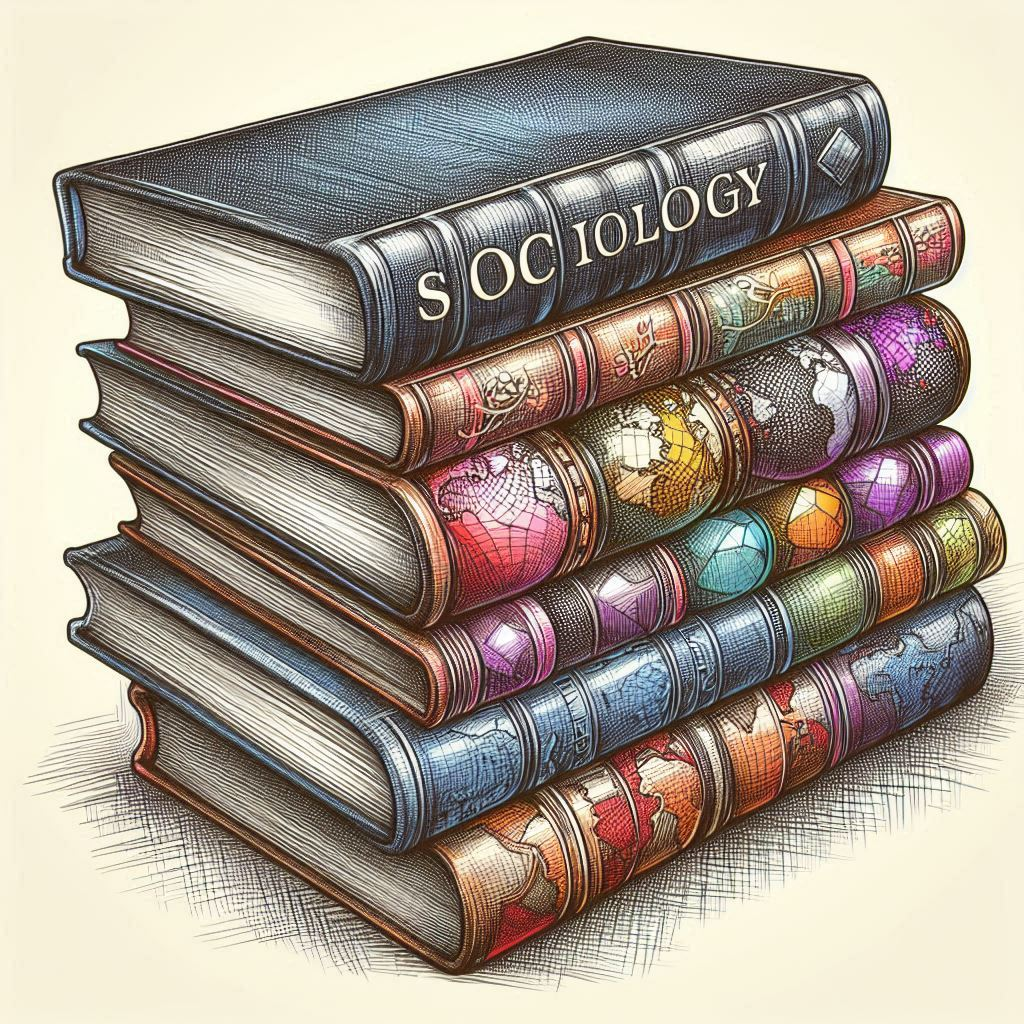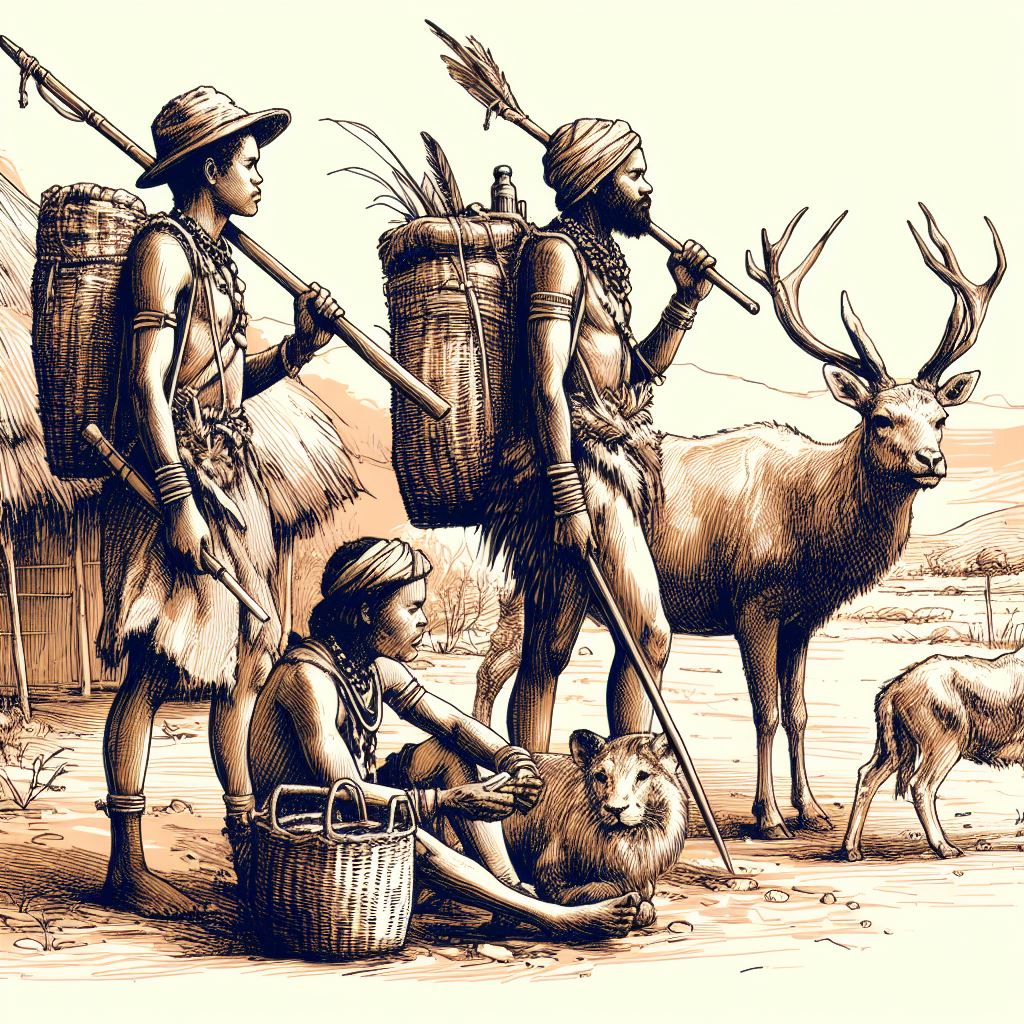Introduction
Society is found even at the level of sub-humans, the primates such as monkeys and chimpanzees. Sociologists submit that what distinguishes human beings from other animals is the presence of culture among human communities; thus, human beings came to be characterized as ‘beings with culture’. For understanding human beings, therefore, we have to look at the dynamics of society and culture.
The concept of society has both empirical and abstract aspects. Empirically, society is viewed as an entity made up of individuals who can internalize social values, norms, and technological knowledge of their community. These individuals establish relationships with one another, and when a person becomes an object of socialization, they are referred to as a ‘person.’ In simple terms, a socialized individual who learns the shared ways of living becomes a person. These interpersonal relationships form the fundamental fabric of society. Aristotle coined the phrase, ‘man is a political (social) animal,’ emphasizing that human beings naturally live together in a social context. Human beings are not meant to live in isolation, and solitary confinement is considered a severe punishment.
As an abstract construct, society refers to the normative and social structure created and maintained by interacting individuals to regulate, control, and socialize human behavior.

Society is defined as a congregation of individuals. However, not all congregations constitute a society. For instance, a crowd or mob is also a gathering of individuals, but it disperses once the stimulus bringing them together disappears. In contrast, a society endures over time, fostering a sense of solidarity among its members. Members of a society share an attachment to their territory, collectively defending it. They also divide labor among themselves, with each unit assigned different tasks and activities. Societies are further divided into smaller entities known as groups.
Thus, society is an entity composed of individuals who share relationships based on mutual sharing. At the empirical level, individuals internalize social norms and values, becoming socialized ‘persons.’ As an abstract construct, society aids sociologists and other social scientists in understanding and analyzing human behavior. Societies endure over time, fostering solidarity among members and dividing labor into smaller groups.
Meaning and Definition of Society:
The term society has been derived from the Latin word ‘Socius’ which means a companion, association, or fellowship. It is because man always lives in the company of his fellow beings. This led George Simmel to remark that sociability is the essence of society. The term society is understood in different senses in different situations. In our day-to-day discussion society is used to refer to the members of specific groups for example- Tribal Society. Other times it refers to some institutions like Arya Samaj, and Brahmo Samaj. Sometime society refers to an association like consumer society, cooperative society or cultural society. Society is also used in the sense of a group such as rural society or urban society.
But in Sociology, Society refers not to a group of people but to the complex pattern of the norms or interaction or relationships that arise among them. People exists only as an agent of social relationships. Mere congregation of individuals do not constitute society. Rather society refers to the complicated network of social relationships by which every individual is interrelated with his fellowmen. Hence Society is more abstract than concrete, in nature. We can’t touch it but feel it. Because society resides in the minds of individual. Society is a process of living not a thing, a motion rather than structure. A system of social relationships is the most important aspect of society. Not all relationships are social. A social relationship implies reciprocal awareness among individuals. This reciprocal awareness direct and indirect are the characteristic of every social relationship. This idea of reciprocal awareness is implied in F.H. Giddings definition of society i.e. “a number of like-minded individuals, who know and enjoy their like-mindedness and are, therefore, able to work together for common ends.” Thus elements of society exists in the ‘Consciousness of Kind’ of Giddings, ‘we feeling’ of cooley or ‘a common propensity of W.I. Thomas.
When more than one individual live together and mutual relationships develop among them and different social processes like mutual co-operation, competition and conflict constantly take place in society. The relationship established around these creates society. Here exists blood relationship between parents and children, brothers and sisters. Voters and leaders are bound in a political relationship. There exists economic relationships between the customer and shopkeeper. There exists social relationships among neighbours. There exists religious relationships between the priest and the family members. The network of these relationships is what we call society. To understand the meaning of the term society more clearly and exactly we must have to give a look towards the definitions given by Sociologists. But Sociologists are not unanimous in their opinion about society. As a result we come across two types of definitions such as structural and functional definitions. But these two views are not contradictory but complementary to each other. These two views are discussed below :
Structural views of Society
According to the Structural View Society is a structure. Accordingly society refers to the social heritage of folkways, mores, ideals, institutions and habits. Supporters of this view are Morris Ginsberg, F.H. Giddings, G.D.H. cole, J.F.Cuber and others. Their views are as follows :
(a) According to F.H.Giddings, “Society is the union itself, the organization, the sum of formal relations in which associated individuals are bound together”.
(b) According to G.D.H. Cole, “Society is the complex of organized associations and institutions within the community”.
(c) According to Morris Ginsburg, “A society is a collection of individuals united by certain relations or modes of behaviours which mark them off from others who do not enter into these relations or who differ from them in behavior.”
(d) According to J.F. Cuber, “A Society may be defined as a group of people who have lived long enough to become organized and to consider themselves and be considered as a unit more or less distinct from other human units.”
Functional Views of Society
According to the functional views, Society is a process of social relationships. It consider society as a complex of groups in reciprocal relationship, interacting among themselves and carrying on an interdependent life and helping each other in fulfilling their wishes. Supporters of this view are MacIver and Page, Parsons, Cooley, Leacock and others.
(a) According to MacIver and Page, “Society is a system of usages and procedures, authority and mutual aid, of many groupings and divisions, of controls of human behavior and of liberties.”
(b) According to T. Parson, “Society may be defined as the total complex of human relationship in so far as they grow out of action in terms of means and relationship, intrinsic or symbolic.”
(c) According to C.H. Cooley, “Society is a complex of forms or processes each of which is living and growing by interaction with the others, the whole being so unified that what takes place in one part affects all the rest.”
(d) According to Leacock, “Society includes not only the political relations by which man are bound together but the whole range of human relations and collective activities.”
Thus, from the above analysis we conclude that from a wider angle society is considered as both a structural as well as functional unit. It is an organization, a system and a pattern. It is a system of rules and regulations which changes in course of time. Society is a larger group of which individual is a member. But society is not a group of people only rather it is a system of relationships which exists among individuals or groups. That is why MacIver remarked that society is “a web of social relationship” This relationships may be of different types. But no social relationship could be possible without awareness and without social relationship there could be no society.
Characteristics of Society:
A comprehensive understanding of society requires a thorough analysis of its characteristics. But the term society could be understood both from a narrower and broader sense. In a narrower sense society refers to a group of people but in a broader sense it refers to the whole human society. However, society has the following characteristics:
(1) Population: A society must have population. Without a group of people no society could be formed. Of course, society refers not to a group of people but to system of social relationships. But for the establishment of social relationships a group of people is necessary. This population is a self perpetuating individuals who reproduces itself through some sort of mating relationship. Hence it is the first requirement of society.
(2) Likeness: Likeness is the most important characteristic of society. Famous sociologist MacIver opines that society means likeness. Without a sense of likeness, there could be no mutual recognition of ‘belonging together’ and therefore no society. This sense of likeness was found in early society on kinship and in modern societies the conditions of social likeness have broadened out into the principles of nationality. Society consists of like bodied and likeminded individuals. Friendship intimacy and association of any kind would be impossible without likeness. It also helps in the understanding of one by the other. That is why F.H. Giddings opines that society rests on the ‘Consciousness of Kind’.
(3) Differences: Along with likeness, differences is another important characteristic of society. Because society involves differences and it depends on it as much as on likeness. That is why MacIver opines that “primary likeness and secondary differences create the greatest of all institutions-the division of labour”. Because, differences is complementary to social relationship. If people will be alike in all respect society could not be formed and there would be little reciprocity and relationship became limited. Family as the first society based on biological differences and differences in aptitude, interest and capacity. Though differences is necessary for society but differences by itself does not create society. Hence differences are sub-ordinate to likeness.
(4) Inter-dependence: Interdependence is another important characteristic of society. This fact of interdependence is visible in every aspect of present day society. Famous Greek Philosopher, Aristotle remarked that ‘Man is a social animal’. As a social animal he is dependent on others. The survival and well being of each member is very much depended on this interdependence. No individual is self sufficient. He have to depend on others for, shelter and security and for the fulfillment of many of his needs and necessities. With the advancement of society this degree of interdependence increases manifold. Family being the first society, is based on the biological interdependence of the sexes. Not only individuals are interdependent but also the groups, communities and societies.
(5) Co-operation and Conflict: Both co-operation and conflict are two another important characteristics of society. Because famous sociologist MacIver once remarked that “Society is Co operation crossed by conflict”. Co-operation is essentially essential for the formation of society. Without co-operation there can be no society. People can’t maintain a happy life without co operation Family being the first society rests on co-operation. Co-operation avoids mutual destructiveness and results in economy in expenditure.
Like co-operation conflict is also necessary for society. Conflict acts as a cementing factor for strengthening social relations. In a healthy and well developed society both co-operation and conflict co-exist. Because, with the help of these two universal process society is formed. Conflict makes co operation meaningful. Conflict may be direct and indirect. However both are necessary for society.
(6) Society is a network or web of social relationship: Social relationships is the foundation of society. That is why famous sociologist MacIver remarked that society is a network of social relationship. Hence it is difficult to classify social relationships. But this social relationship is based on mutual awareness or recognition to which Cooley call we-feeling, Giddings call consciousness of kind and Thomas as common propensity. Without these social relationships no society could be formed. As social relationships are abstract in nature so also the society is abstract in nature. Different kinds of social processes like co-operation, conflict constantly takes place in society. And the relationships established around these creates society. Hence a network of social relationships which created among individuals constitutes society.
(7) Permanent Nature: Permanency is another important characteristic of society. It is not a temporary organization of individuals. Society continues to exist even after the death of individual members. Society is a co-herent organization.
(8) Society is Abstract: Society is an abstract concept. As MacIver opines society is a web of social relationships. We can’t see this relationship but we can feel it. Hence, it is an abstract concept. Wright has rightly remarked that “society in essence means a state or condition, a relationship and is, therefore, necessarily an abstraction”. Besides society consists of customs, traditions, folkways, mores and culture which are also abstract. Hence, society is abstract in nature.
(9) Society is Dynamic: The very nature of society is dynamic and changeable. No society is static. Every society changes and changes continuously. Old customs, traditions, folkways, more values and institutions got changed and new customs and values takes place. Society changes from it’s traditional nature to modern nature. Hence it is one of the most important characteristics of society.
(10) Comprehensive Culture: Culture is another important characteristic of society. Each and every society has it’s own culture which distinguishes it from others. Culture is the way of life of the members of a society and includes their values, beliefs, art, morals etc. Culture is comprehensive because it fulfils the necessities of social life and is culturally self-sufficient. Besides, each and every society transmits its cultural pattern to the succeeding generations.
Conclusion
Society, as a complex network of social relationships, holds a significant place in sociology. Its characteristics, including population, interdependence, co-operation, conflict, and cultural distinctiveness, contribute to its dynamic nature and ongoing evolution over time. Understanding the various dimensions and aspects of society is essential for comprehending human behavior and interactions in the broader social context. The structural and functional views complement each other in providing a comprehensive understanding of society as both an organization and a system of relationships.



My brother recommended I might like this website.
He was entirely right. This post truly made my
day. You cann’t imagine simply how much time I spent for this info!
Thanks!
fantastic points altogether, you just won a new reader.